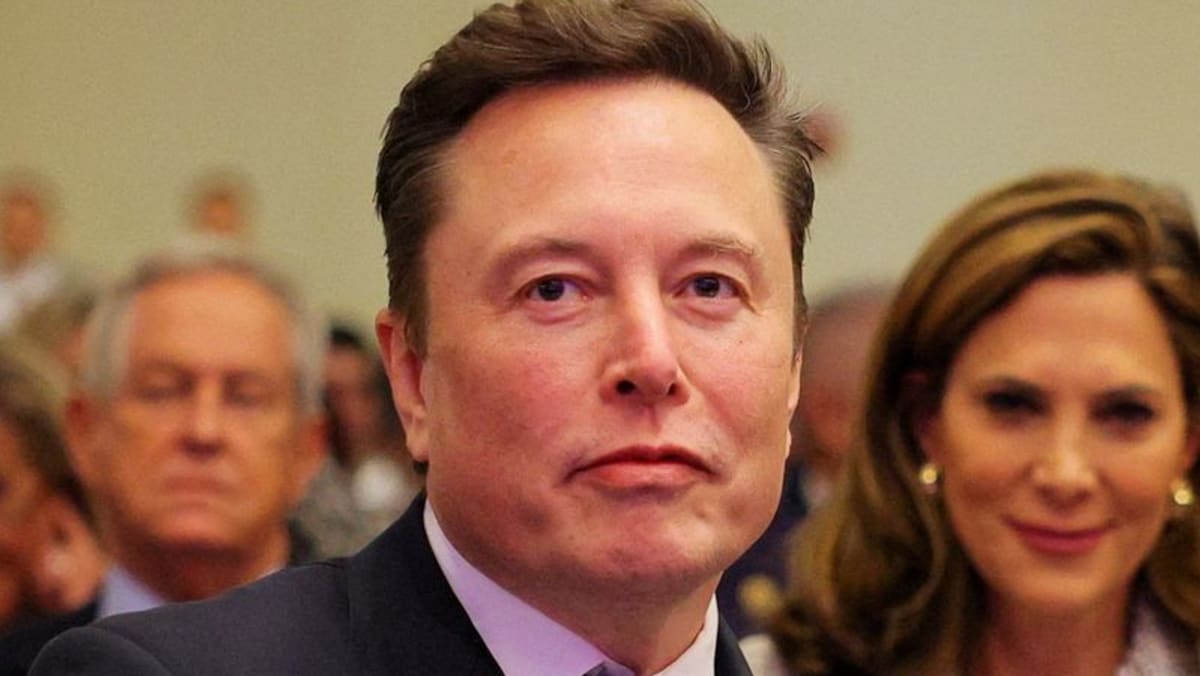The French are leaving their mark on the Middle East, comme toujours. In Israel on Monday, the country’s untested new foreign minister, the 38-year-old Stéphane Séjourné, called for “an immediate and lasting cease-fire” and an “influx of humanitarian aid.” He added at a press conference that Gazans are unable to “feed themselves,” though that is not true. Five million people, though, are close to starving in Sudan.
Given President Macron’s penchant for lecturing and hyperbole, it will come as no great relief to Israelis that Mr. Macron’s former foreign minister, Catherine Colonna, will be heading up the committee investigating Unrwa following allegations of terrorism against several of the Palestinian relief agency’s employees. Now in the midst of an unprecedented scandal, Unrwa faces a loss of more than $400 million in donor contributions — and an uncertain future.
The UN spokesman, Stephane Dujarric, told reporters Monday, “The secretary-general, in consultation with Unrwa Commissioner-General Philippe Lazzarini, has appointed an independent review group to assess whether the agency is doing everything within its power to ensure neutrality and to respond to allegations of serious breaches that have been made.”
Israel says that more than a dozen Unrwa employees were actively involved in the Hamas attacks against Israelis on October 7 last year. On January 26, the UN disclosed that Israel gave it specific information about the complicity and the individuals, and the UN fired nine of them.
The anger is growing in Israel over the mere existence of Unrwa in light of the news about its workers that has recently come to light. On Monday night hundreds of Jerusalem residents protested in front of the agency’s headquarters there, calling for it to be shut down. “We demand the Israeli government kick Hamas and Unrwa out of Jerusalem,”Jerusalem’s deputy mayor, Aryeh King, said at the demonstration.
While an overhaul of Unrwa, which employs more than 10,000 people, looks likely, a total closure is not. The commission that Ms. Colonna will lead will review whether Unrwa has the necessary internal control mechanisms to ensure neutrality and respond to indications that United Nations principles may have been violated. It also aims to determine whether these mechanisms failed in the present case and what needs to be improved in the future.
Yet the fact that several Unrwa employees have already been fired points to the existence of irrefutable evidence that the agency does not, and possibly never had, such control mechanisms in place.
Several countries, including America and Britain, suspended their donations to Unrwa following those reports. Germany, the second-largest donor after America, announced last week that it would “temporarily not approve any new funds for Unrwa in Gaza” until the investigation was completed. Spain, though, has subsequently said it will help out with the agency’s cash crunch.
The EU’s foreign policy chief, Josep Borrell, said last week with characteristic helpfulness that there could be “no replacement for Unrwa.”
The special commission begins its work on February 14 and is supposed to submit a preliminary report to the UN secretary-general, Antonio Guterres, by late March. In a statement, the working group said that it is being supported by three research institutions: the Raoul Wallenberg Institute in Sweden, the Norwegian Christian Michelsen Institute, and the Danish Institute for Human Rights.
In parallel to what will effectively be an external investigation, an internal UN oversight authority is reportedly already investigating the suspicion that 12 Unrwa employees were involved in the Hamas attacks on October 7. Mr. Lazzarini, the Unrwa chief, has reportedly asked for clarification after Israeli authorities provided relevant information. Not for the first time, the Unrwa chief has been laggard in his responses.
As for what qualifies Ms. Colonna for her role in this mess, other than the simple fact of her availability following Mr. Macron’s recent decision to shake up and rejuvenate his cabinet, is unclear. It is known that between 2020 and 2023 she worked on a Middle East peace initiative along with Germany, Jordan, and Egypt.
The problem is that in modern French governments, foreign ministers typically have limited influence; the real power to shape events rests with the president. On the domestic side it is a little different. That is why someone like Rachida Dati, who served as minister of justice under President Sarkozy, might have made for a better choice to take charge of the Unrwa commission as the agency faces the worst crisis of credibility in its checkered 74-year history.
The best prospects for abolishing the agency altogether would be under a hypothetical second Trump presidency. In 2018 the Trump administration cut all American funding for Unrwa, an agency widely seen as needlessly perpetuating a ginned up refugee crisis to the career benefit of some, including Mr. Lazzarini. In 2021, President Biden reversed that decision.
















Discussion about this post